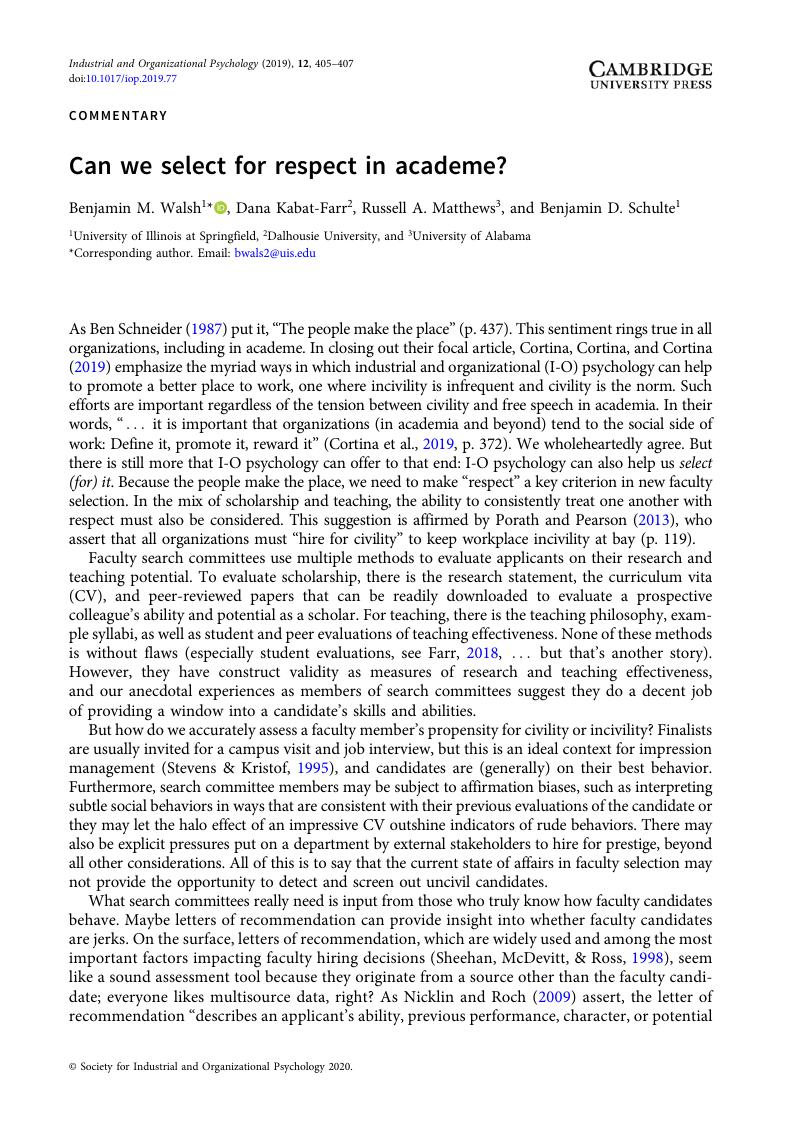Crossref Citations
This article has been cited by the following publications. This list is generated based on data provided by Crossref.
Clancy, Kathryn B. H.
Cortina, Lilia M.
and
Kirkland, Anna R.
2020.
Use science to stop sexual harassment in higher education.
Proceedings of the National Academy of Sciences,
Vol. 117,
Issue. 37,
p.
22614.
Walsh, Benjamin M.
Heighton, Brittany
Dingens, Chloe
and
Zhang, Chunyu
2023.
What should I say? Testing ways to reduce fear and increase disclosure of incivility in reference checks.
PLOS ONE,
Vol. 18,
Issue. 8,
p.
e0290011.



